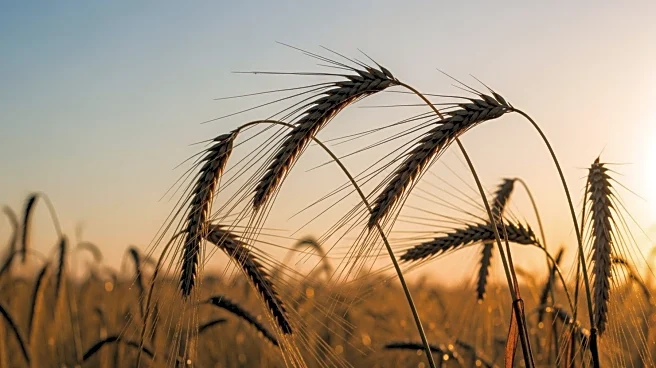What's Happening?
The Doha Film Festival has unveiled its International Feature Film Competition lineup for its inaugural edition, set to take place in November 2025. Spearheaded by the Doha Film Institute, the festival will feature 13 world cinema titles that explore contemporary themes such as ecological crises and war displacement. Notable entries include 'Once Upon a Time in Gaza,' which won the Best Director award at Cannes Un Certain Regard, and 'The President’s Cake,' Iraq's Oscar entry for 2026. The festival aims to create spaces for meaningful dialogue through these artistic expressions, according to DFI CEO Fatma Hassan Alremaihi. The event will be held at various locations across Doha, including the Katara Cultural Village and the Museum of Islamic Art.
Why It's Important?
The Doha Film Festival's inaugural edition marks a significant expansion of Qatar's cultural landscape, providing a platform for global filmmakers to showcase their work. By focusing on themes like ecological crises and war displacement, the festival highlights pressing global issues, fostering empathy and reflection among audiences. The event also offers substantial financial awards, which can support filmmakers in continuing their work. This initiative not only enhances Qatar's cultural offerings but also positions the country as a hub for international cinematic dialogue, potentially attracting tourism and boosting local economies.
What's Next?
The festival will run from November 20 to 28, 2025, and will feature a jury of five industry experts who will select winners in various categories, including Best Narrative and Best Documentary. The festival's other competitive strands, such as the International Short Film Competition and the Made in Qatar Competition, will be announced in the coming weeks. As the festival approaches, filmmakers and audiences alike will be preparing for the event, which promises to be a significant cultural milestone for Doha and the international film community.
Beyond the Headlines
The Doha Film Festival's focus on themes like ecological crises and war displacement could have long-term cultural implications, encouraging filmmakers to tackle challenging subjects and audiences to engage with complex narratives. This approach may influence future film festivals to prioritize socially relevant content, potentially leading to a shift in the global cinematic landscape. Additionally, the festival's emphasis on creating safe spaces for dialogue may contribute to broader societal conversations about these critical issues.









